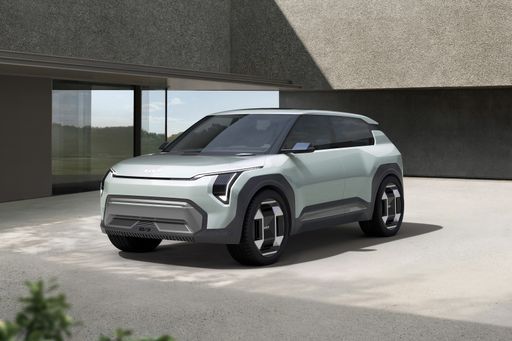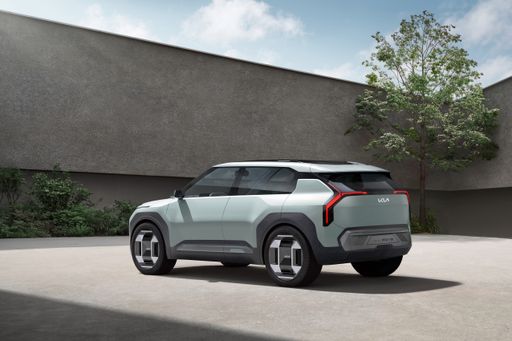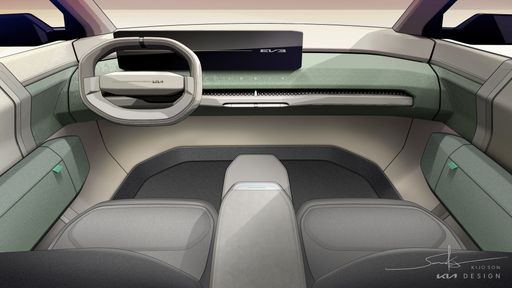Kia EV3 vs ZEEKR X - Differences and prices compared
Compare performance (204 HP vs 428 HP), boot space and price (30800 £ vs 34300 £ ) at a glance. Find out which car is the better choice for you – Kia EV3 or ZEEKR X?
Costs and Efficiency:
Price and efficiency are key factors when choosing a car – and this is often where the real differences emerge.
Kia EV3 has a to a small extent advantage in terms of price – it starts at 30800 £ , while the ZEEKR X costs 34300 £ . That’s a price difference of around 3429 £.
In terms of energy consumption, the advantage goes to the Kia EV3: with 14.90 kWh per 100 km, it’s to a small extent more efficient than the ZEEKR X with 16.50 kWh. That’s a difference of about 1.60 kWh.
As for electric range, the Kia EV3 performs clearly perceptible better – achieving up to 605 km, about 160 km more than the ZEEKR X.
Engine and Performance:
Power, torque and acceleration are the classic benchmarks for car enthusiasts – and here, some clear differences start to show.
When it comes to engine power, the ZEEKR X has a convincingly edge – offering 428 HP compared to 204 HP. That’s roughly 224 HP more horsepower.
In acceleration from 0 to 100 km/h, the ZEEKR X is clearly quicker – completing the sprint in 3.80 s, while the Kia EV3 takes 7.50 s. That’s about 3.70 s faster.
In terms of top speed, the ZEEKR X performs slightly better – reaching 190 km/h, while the Kia EV3 tops out at 170 km/h. The difference is around 20 km/h.
There’s also a difference in torque: ZEEKR X pulls significantly stronger with 543 Nm compared to 283 Nm. That’s about 260 Nm difference.
Space and Everyday Use:
Beyond pure performance, interior space and usability matter most in daily life. This is where you see which car is more practical and versatile.
Both vehicles offer seating for 5 people.
In curb weight, Kia EV3 is minimal lighter – 1800 kg compared to 1855 kg. The difference is around 55 kg.
In terms of boot space, the Kia EV3 offers clearly perceptible more room – 460 L compared to 362 L. That’s a difference of about 98 L.
When it comes to payload, ZEEKR X to a small extent takes the win – 555 kg compared to 470 kg. That’s a difference of about 85 kg.
Who wins the race in the data check?
The ZEEKR X is far ahead overall in the objective data comparison.
This result only shows which model scores more points on paper – not which of the two cars feels right for you.
Costs and Consumption
View detailed analysis
Engine and Performance
View detailed analysis
Dimensions and Body
View detailed analysis

ZEEKR X
Kia EV3
The Kia EV3 arrives as a cheeky, practical electric compact that manages to feel both premium and playful, delivering crisp handling and a roomy cabin that's perfect for urban life. With smart tech, friendly styling and sensible pricing, the EV3 is the kind of car that makes switching to electric feel like a no-brainer without asking you to give anything important up.
details


ZEEKR X
The Zeekr X feels like a pocket rocket for city life, delivering brisk performance and nimble handling wrapped in a surprisingly premium little package. Inside it offers smart tech and refined materials that make daily driving feel more like a small luxury escape, all while keeping a tasteful, understated presence.
detailsCosts and Consumption |
|
|---|---|
|
Price
30800 - 41700 £
|
Price
34300 - 42400 £
|
|
Consumption L/100km
-
|
Consumption L/100km
-
|
|
Consumption kWh/100km
14.9 - 16.2 kWh
|
Consumption kWh/100km
16.5 - 17.5 kWh
|
|
Electric Range
436 - 605 km
|
Electric Range
330 - 445 km
|
|
Battery Capacity
58.3 - 81.4 kWh
|
Battery Capacity
64 kWh
|
|
co2
0 g/km
|
co2
0 g/km
|
|
Fuel tank capacity
-
|
Fuel tank capacity
-
|
Dimensions and Body |
|
|---|---|
|
Body Type
SUV
|
Body Type
SUV
|
|
Seats
5
|
Seats
5
|
|
Doors
5
|
Doors
5
|
|
Curb weight
1800 - 1885 kg
|
Curb weight
1855 - 1960 kg
|
|
Trunk capacity
460 L
|
Trunk capacity
362 L
|
|
Length
4300 - 4310 mm
|
Length
4432 mm
|
|
Width
1850 mm
|
Width
1836 mm
|
|
Height
1560 - 1570 mm
|
Height
1566 mm
|
|
Max trunk capacity
1251 L
|
Max trunk capacity
-
|
|
Payload
470 kg
|
Payload
550 - 555 kg
|
Engine and Performance |
|
|---|---|
|
Engine Type
Electric
|
Engine Type
Electric
|
|
Transmission
Automatic
|
Transmission
Automatic
|
|
Transmission Detail
Reduction Gearbox
|
Transmission Detail
Reduction Gearbox
|
|
Drive Type
Front-Wheel Drive
|
Drive Type
Rear-Wheel Drive, All-Wheel Drive
|
|
Power HP
204 HP
|
Power HP
272 - 428 HP
|
|
Acceleration 0-100km/h
7.5 - 7.9 s
|
Acceleration 0-100km/h
3.8 - 5.9 s
|
|
Max Speed
170 km/h
|
Max Speed
180 - 190 km/h
|
|
Torque
283 Nm
|
Torque
343 - 543 Nm
|
|
Number of Cylinders
-
|
Number of Cylinders
-
|
|
Power kW
150 kW
|
Power kW
200 - 315 kW
|
|
Engine capacity
-
|
Engine capacity
-
|
General |
|
|---|---|
|
Model Year
2024
|
Model Year
2024 - 2025
|
|
CO2 Efficiency Class
A
|
CO2 Efficiency Class
A
|
|
Brand
Kia
|
Brand
ZEEKR
|
What drive types are available for the Kia EV3?
The Kia EV3 is offered with Front-Wheel Drive.




